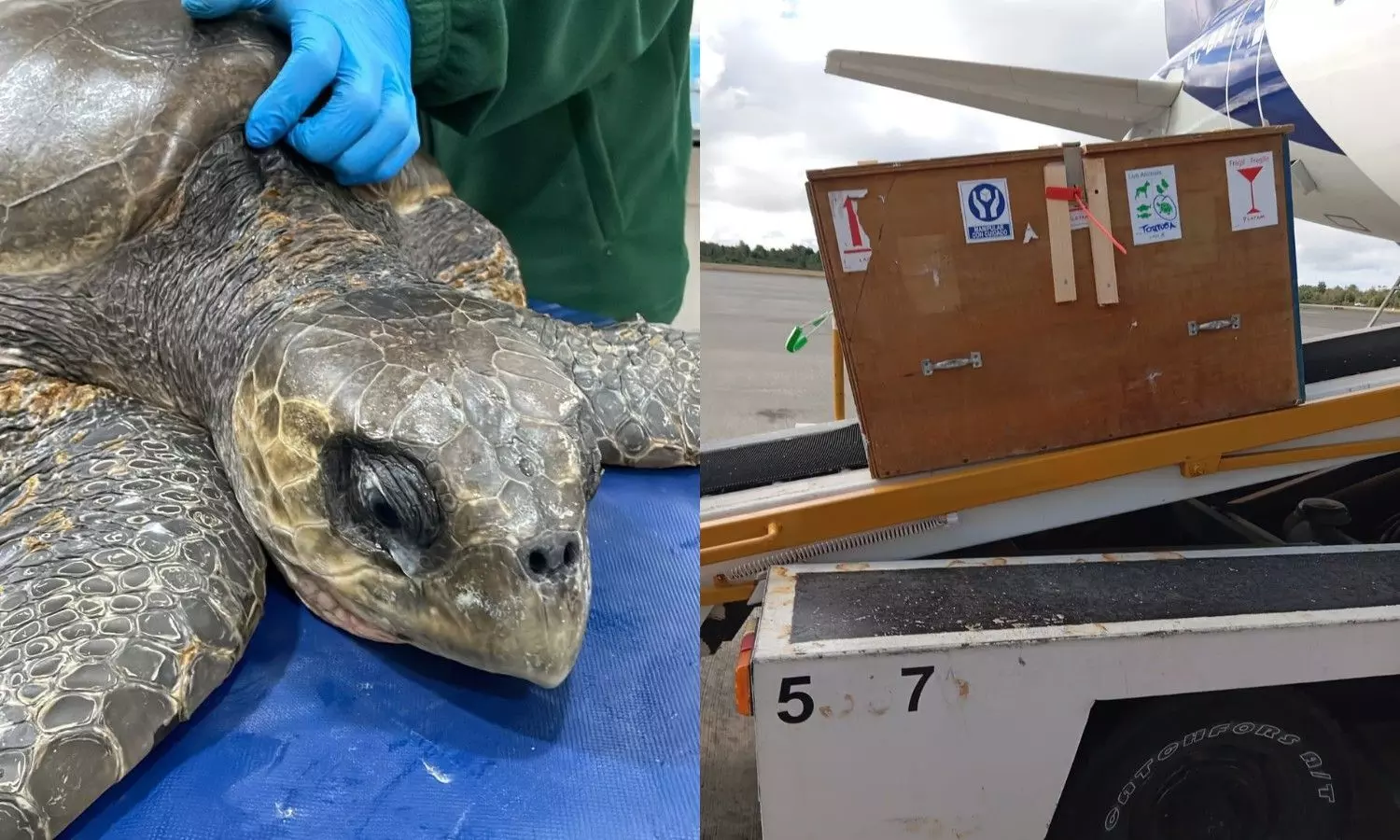
LATAM transports rescued olive ridley turtle for rehabilitation
It was rescued by Sernapesca and flown for rehabilitation by LATAM’s Solidarity Plane programme.

An olive ridley turtle rescued by the National Fisheries and Aquaculture Service (Sernapesca) off the coast of Ancud, Chiloé Island, was transported from the Los Lagos Region to Santiago on Friday, March 28, 2025, under LATAM’s Solidarity Plane programme. The transfer was carried out to enable the turtle’s rehabilitation at the Safari Conservation Foundation in the O’Higgins Region. The turtle was found stranded and injured, prompting Sernapesca to initiate rescue and treatment efforts.
The adult female turtle, weighing 38 kg and measuring 90 cm in length, was initially taken to the Chiloé Silvestre biodiversity conservation centre. There, she received fluid therapy, antibiotics, vitamins, and pain management for superficial injuries on her carapace and front flippers. A decision was then made to transfer her for continued treatment and rehabilitation.
Juan José Tohá, Director of Corporate Affairs and Sustainability for the LATAM group, said, “Through our Solidarity Plane programme, we make our network available for conservation, facilitating the transport of at-risk wildlife so it can receive necessary care and return to its habitat in the best possible condition. This collaboration with Sernapesca is a concrete example of how connectivity can contribute to the preservation of our species.”
Ricardo Sáez, National Head of the Conservation and Biodiversity Unit at Sernapesca, said, “The journey began this Friday, March 28th, involving a long land trip, a ferry crossing, and a flight to the Metropolitan Region, before the turtle was finally transferred to the Safari Conservation Foundation's Rehabilitation Centre in the O’Higgins region. There, she will be rehabilitated until she is in optimal condition to return to her natural habitat.”
Once the turtle is fully rehabilitated, it is expected she will be reintroduced to the coasts of northern Chile, where environmental conditions are more suitable for the species, including higher food availability and appropriate temperatures.
The olive ridley turtle is classified as vulnerable by the International Union for Conservation of Nature and Chile’s Ministry of the Environment. It is also listed under Appendix I of the Convention on International Trade in Endangered Species of Wild Fauna and Flora. The species inhabits tropical waters and faces threats from pollution, climate change, and fishing activities.
LATAM’s Solidarity Plane programme, active for over 13 years, provides free cargo and passenger transport across South America for humanitarian, health, and environmental causes. The programme currently has nearly 50 partnerships across five countries and supported the transport of over 400,000 kilogrammes of cargo and 1,655 people in Chile in 2024 alone.

